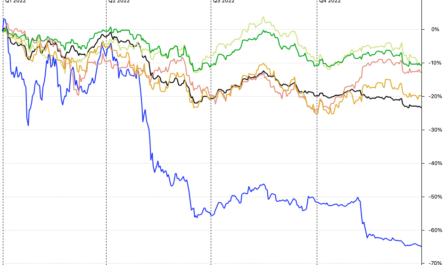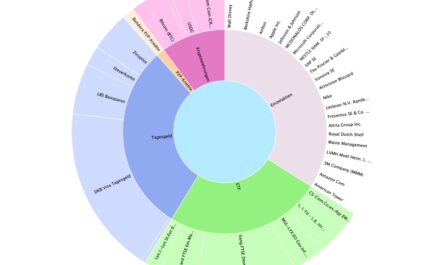It’s always so easy to say: “Increase your savings rate”, “Keep at least four months’ salary as a nest egg” or “Always live below your means”. But in times of high inflation, this well-intentioned advice is not always so easy to implement, especially when you compare yourself with the average.
According to the Federal Statistical Office, the average German household had monthly consumer spending of EUR 2,846 in 2022. Housing and energy costs accounted for the largest share of this at around 36%, followed by food and transport. Almost 9% was spent on leisure activities and just over 6% on eating out.
However, these figures are not entirely representative, as a household can always consist of several people and therefore several incomes. A single person may not come close to such figures, which is why we have taken a closer look at them using two different salary categories.
The average is not representative
The average gross salary in Germany in 2021 was around 4,100 euros, which corresponds to an employer’s gross salary with all contributions of almost 5,000 euros. After deducting all taxes and duties, the average person’s account would receive 2,656.04 euros. For a one-person household, the authorities set an appropriate apartment size of 50 square meters. With a view to a possible future partner, we have assumed 60 square meters for this scenario at a rent of 14 euros per square meter. This results in 910 euros for the rent and 300 euros for electricity and heating.
60 is spent on food per week, and the costs for the most important insurances were set at 110 euros. There is no need for a car thanks to the central city apartment, but there is a Germany ticket for around 50 euros a month. Other expenses for health, clothing and eating out were assumed to be between 35 and 120 euros per item. An estimate of 90 euros was made for a smartphone and internet connection.
In this example, this brings the total monthly consumer spending to EUR 1,955 per month, which is well below the average that a household in Germany spends per month according to the Federal Office. Of course, you could include additional items for the car or vacation for more comfort and luxury.
In the end, this would still leave around 700 euros available for building up a nest egg and investing in shares and cryptocurrencies. After all, a savings rate of just under 25% would be feasible with a lot of discipline.
| Income / Expenditure | Single household I | Single household II |
|---|---|---|
| Gross employee income | 4,998.68 euros | 3,613.50 euros |
| Income tax | 580:91 euros | 317.08 euros |
| Social security contributions | 1,761.73 euros | 1,255.00 euros |
| Gross employee salary | 4,100.00 euros | 3,000.00 euros |
| Employee net | 2,656.04 euros | 2,041.42 euros |
| Housing | 910.00 euros | 700.00 euros |
| Energy and heating | 300.00 euros | 200.00 euros |
| Food and beverages | 240.00 euros | 240.00 euros |
| Insurances | 110.00 euros | 100.00 euros |
| Transportation | 50,00 euros | 50.00 euros |
| Health | 35.00 euros | 35.00 euros |
| Clothing | 100.00 euros | 100.00 euros |
| Catering and accommodation | 120.00 euros | 120.00 euros |
| Information and communication | 90.00 euros | 90.00 euros |
| Total income | 2,656.04 euros | 2,041.42 euros |
| Total expenditure | 1,955.00 euros | 1,635.00 euros |
| Surplus / deficit | 701.04 euros | 406.42 euros |
Even at 3,000 euros gross it gets difficult
The situation is different if you only earn 3,000 euros gross and therefore cost your employer 3,613.50 euros every month. This leaves €2,041.42 on the income side, which leaves much less room for maneuver on the expenditure side. We have therefore already cut back on housing and energy costs and reduced the size of the apartment to 50 square meters, which also results in slightly lower expenses for insurance. The remaining expenses were left with identical figures to the first example. In the end, you end up with expenses of EUR 1,635 and therefore have just over EUR 400 available, which means you can still achieve a savings rate of 25%.
In practice, however, this is likely to be difficult. Especially in urban centers, rents for smaller apartments are significantly higher than the 14 euros per square meter estimated here. If you are dependent on a car and also want to go on vacation, you will have to estimate other items and thus assume significantly higher expenses, which reduces the opportunities for saving. For this reason, too, the focus for building up your own assets should not be exclusively on the savings rate, but above all on continuously increasing your income – if necessary by taking on an additional mini-job.







